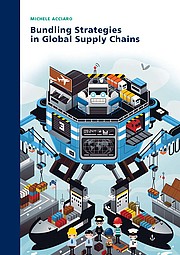Bundling Strategies in Global Supply Chains Defended on Thursday, 10 June 2010
The development of logistics has offered a wide range of new business opportunities for transport operators. Shipping lines have been taking advantage of these opportunities and have expanded their business scope beyond the movement of cargo, to include, for example, coordination among transport modes, route rationalisation and even value added logistics services. Carriers offer today transportation as part of integrated global supply chain solutions in an attempt to provide a better service to their customers as well as improve their bottom lines. This appears to be a winning strategy since an increasing number of industry players are investing in logistics operations and infrastructure.
The offering of products and services jointly as a package or bundle is a common marketing strategy in a variety of industries and also appears to be a successful strategy for enhancing shipping lines’ competitiveness and profitability. Only limited research is available though to better understand under what conditions such bundled sales are possible; what attitude shippers show towards this industry trend; how bundling strategies could be developed optimally; and how they could be priced. This thesis is a contribution to research in this area and provides an analysis of the viability and the benefits of bundling strategies in the container industry, and specifically with reference to the joint provision of ocean transportation and other logistics services.
Keywords
bundling, liner shipping, container logistics, outsourcing, package sales, logistics integration, dedicated terminals, ocean carriers








